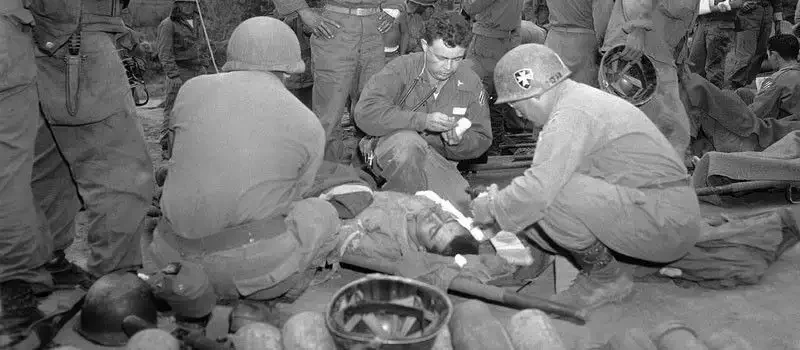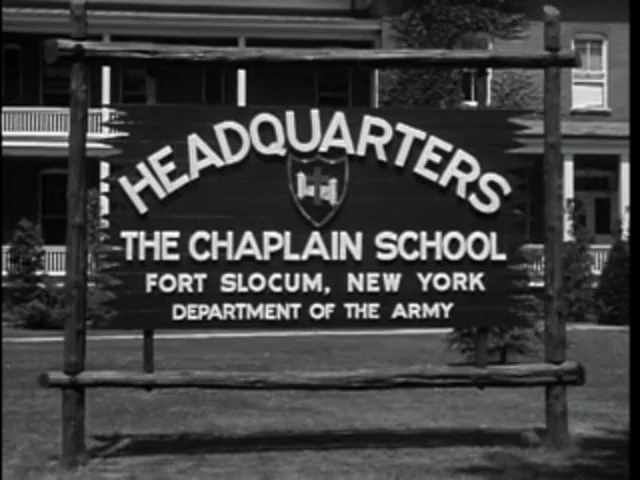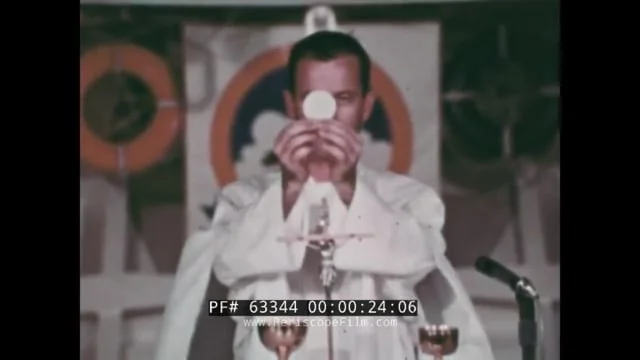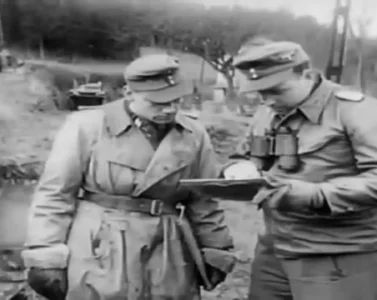- Military History
- Prisons, Prisoners & Camps
- Stories
- Military Chaplains in the War

Military Chaplains in the War Many chaplains elected to stay with their units even in captivity
According to international law, chaplains are considered to be protected personnel who are not subject to internment as POW’s. They are to be released as soon as possible by their captors and returned to their own forces. Many chaplains, however, have elected to stay with their captive flocks and have provided essential solace to POW’s facing the challenges of captivity.
International law throughout the twentieth century has stipulated that chaplains be given every opportunity to minister to their fellow prisoners; this is one article of international law that seems to have been honored widely in the world wars. The 1929 Geneva Convention Relative to the Treatment of Prisoners of War stated that POW’s should be at liberty to exercise their religious beliefs; the 1949 Geneva Convention Relative to the Treatment of Prisoners of War reiterated this point, adding that the detaining power is obliged to provide suitable space for worship.
Other agreements stipulated the number of chaplains to be retained for prison-camp duties, ranging from one per thousand (as laid down in an agreement between the United States and Germany) to four per thousand (terms reached by Germany and South Africa). Should chaplains from one's own forces be unavailable, the 1949 Geneva Convention allowed that a chaplain from the local area could be appointed to work with prisoners. Furthermore, the chaplain was to be allowed further liberties, including freedom to travel between camps to visit POW’s and freedom to correspond with ecclesiastical groups that assist in his work.
In World War II there were no German chaplains in captivity because German units did not include chaplains, as did most Allied units. Therefore, most of the religious work in POW camps in Canada and the United States was done by local or neutral chaplains. Despite the Nazis' official distaste for religion, many German POW’s were receptive to the work of the American and Canadian religious organizations that were active in the camps, like the National Catholic Welfare Council, the Lutheran Commission for Prisoners of War, the World Council of Churches, and the Ecumenical Commission for Chaplaincy Service to Prisoners of War.
Indeed, there were reports of dramatic increases in church attendance among German POW’s within the first few months after a religious organization began work in a camp.
On the other side of the wire, few captured Allied chaplains reported any difficulty in carrying out their work in World War II. For example, Eugene Daniel, an American Presbyterian minister who became a POW in North Africa in 1943, was originally denied permission to remain with the enlisted ranks of his unit in captivity. Instead, he was transferred to an officers' camp that already had 21 padres on staff. Quickly pointing this out to his captors, Daniel was just as quickly on his way back to Stalag 7A at Moosburg, Bavaria, where the men of his unit had been imprisoned.
Shortages of religious materials were sometimes a problem, but the Young Men's Christian Association was very active in supplying church furnishings to prison camps. Padres found attendance at church services was spotty, but they could always be guaranteed a good crowd on important days.
J. Ellison Platt, a Methodist chaplain taken prisoner at Dunkirk in 1940, organized four services on Christmas Eve and Christmas Day in Oflag 4C (Colditz) in 1944. All were well attended, despite the fact that the temperature in the unheated chapel had dropped to –11 degrees Celsius (12.2°F).
The padre in captivity spent as much time counseling his fellow prisoners as preaching to them, for many troubled men would turn to the chaplain when the burdens of captivity grew too heavy. But chaplains themselves were also vulnerable to despair. Douglas Thompson, a Methodist chaplain captured in North Africa in World War II, found himself ministering to a fellow padre who had been captured in Greece and who had become unhinged as a result of his experiences in captivity. Thompson was able to keep the man from deteriorating further while he awaited repatriation home.
The situation was very different during the Korean War, when chaplains of the United Nations Command were singled out for particularly brutal treatment by the North Korean regime. Three U.S. Army padres died in captivity (Kenneth Hyslop, Emil Kapaun and Wayne Burdue), in part because of their selfless determination to serve their fellow prisoners. A British chaplain, the Reverend S. J. Davies, was decorated for his devotion to his men. In each case, it was clear that the chaplain played a major role in helping his men to survive captivity.
- {{#owner}}
- {{#url}} {{#avatarSrc}}
{{name}} {{/url}} {{^url}} {{#avatar}} {{& avatar}} {{/avatar}} {{name}} {{/url}} - {{/owner}} {{#created}}
- {{created}} {{/created}}

























